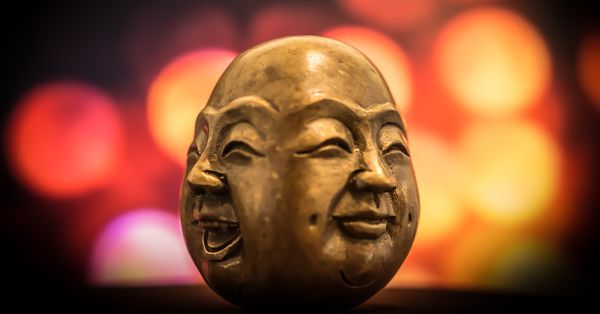Here are a few recent articles about the influence of honor and shame in contemporary China. I’ve included a small snapshot introducing each article.
Why are women accused of witchcraft? Study in rural China gives clue (Jan 13, 2018)
But a study we conducted of one Chinese region provided an opportunity to test the most common hypothesis – that witchcraft accusations act as punishment for those who do not cooperate with local norms. According to this theory, witch tags mark supposedly untrustworthy individuals and encourage others to conform out of fear of being labelled. However, some empirical studies have shown that witch labelling instead undermines trust and social cohesion in a society….
We also discovered that the process of acquiring the label was opaque. Even victims often did not know who had started a rumour about them, they may just begin to notice others avoiding them. Some sources report such tags running in the family, with daughters inheriting the status from their mothers. Hence the origin of the slur could have occurred long ago…..
Anthropologists who believe that the fear of loss of reputation (by witch labelling or other reasons) can be a huge driver of cooperation in the wider community often back their arguments with laboratory experiments using economic games. Such experiments also show that those who punish transgressors can gain reputational benefits themselves. …”
Why Chinese Relatives Fat Shame Kids at Every Family Gathering (December 22, 2017)
If you’re an American-born Chinese like me, you dreaded greeting your relatives at holiday parties. It’s not because you dislike them, but because without hesitation or batting an eyelash, they would all comment about how fat you’ve gotten. To a Westerner like me, this would be a massive uncalled-for insult. Baffled and shocked, I would feel humiliated and resign to an awkward silence. However, to a Chinese native, this is as common as commenting that you got a haircut or a new sweater.
The fact of the matter is that commenting on your appearance isn’t a social taboo in China as it is in America. Being called fat isn’t exactly a compliment or an insult, but more of a statement or observation. ….
‘China’s Day of Shame’: Local Officials Ban Communists from Christmas Celebrations (Dec 20, 2017)
The article notes that one chapter of the China Communist Youth League (CCYL) has labeled Christmas “China’s Day of Shame.”
The piece highlights the work of communist officials in Hengyang City in Hunan province, where they have decreed that party members “resist the rampant Western festival.” The order also bans any member of the Communist Party from celebrating Christmas “so as to build a good image of Party officials.”
The CCYL has also generally targeted Christmas as a blight upon the nation, publishing posts on its official social media that state that “Christmas is China’s day of shame” and good communists reject “cultural invasion.”
Debtors in China are placed on a blacklist that prohibits them from flying, buying train tickets, and staying at luxury hotels (Dec 19, 2017)
“China maintains a public blacklist of debtors that effectively restricts their movements and their spending habits.
The country’s highest court publishes the names and ID numbers of “dishonest people” on its website and restricts those people from flying domestically, using high-speed trains, or enrolling their children at expensive private schools.
Defaulters are also prevented from staying at hotels with three-stars or more. They also face tougher exams if they want to join the civil service, and are charged higher fees for booking cars. The bans work by linking to a person’s ID number. Some people used their passport when travelling to circumvent the ban, but that loophole now appears to be closed. ….”
China mulls law on protecting reputation of heroes, martyrs (Dec 22, 2017)
“China’s top legislature Friday heard a report on the draft law protecting the reputation and honor of heroes and martyrs.
Departments including public security, culture, press and cyberspace have a responsibility to protect the reputation and honor of heroes and martyrs in their supervision, according to the draft law.
It is a duty of Internet operators to timely handle online information that infringes on heroes and martyrs, the draft law reads. ….”












